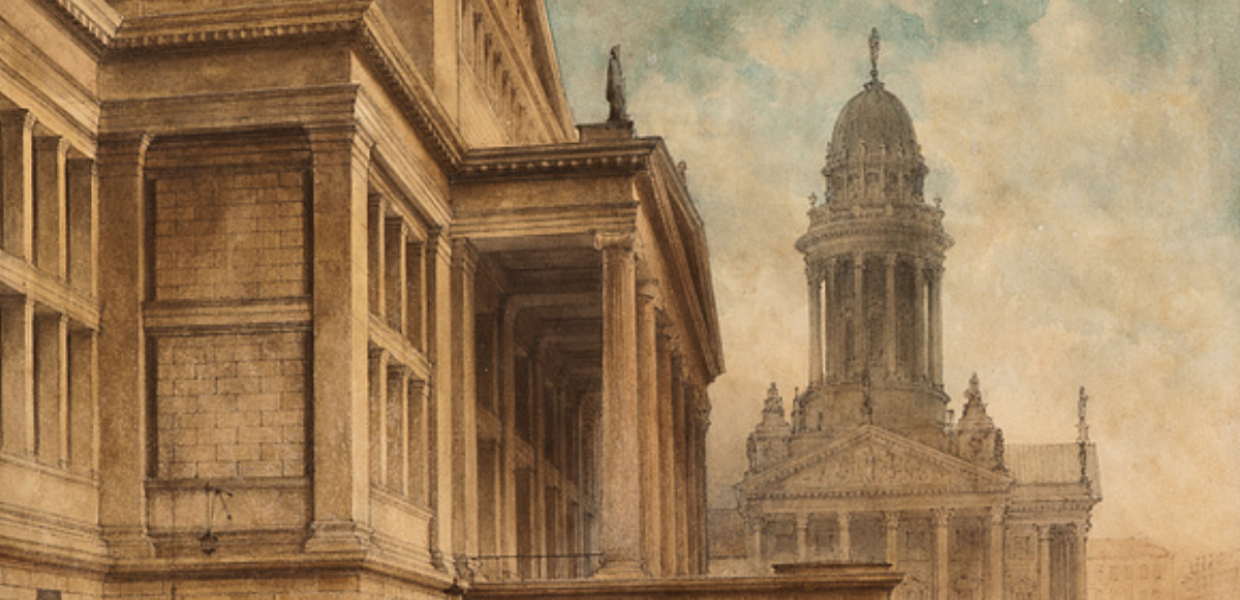Copyright in the cultural heritage sector: outcomes of the German Presidency event
The need for copyright capacity building, the importance of collaboration across stakeholders, and high expectations for the changes brought by the Copyright in the Digital Single Market Directive: these were the main messages that came out of our recent two day Presidency Event on the role of copyright in the digital transformation of the cultural heritage sector. In this post, we tell you all about the event and our next steps.
Every six months, Europeana hosts a conference under the sitting presidency of the Council of EU. The event gathers members from the Expert Group on Digital Cultural Heritage and Europeana (DCHE), a group of Member States' bodies and the European Commission which focuses on digitisation, online accessibility of cultural material and digital preservation and further key topics for the sector.
On this occasion, the event, which took place under the German Presidency of the Council of the European Union and was co-organised by Europeana and the German National Library, explored the role of copyright in the digital transformation of the cultural heritage sector.
More than 30 DCHE and copyright advocates and experts from 21 countries participated in the event, joining a series of break out sessions, roundtable discussions and panel presentations. As the first fully online presidency event, we had the opportunity to open up some of the sessions to the public.
The event offered an opportunity to bring member states representatives together and exchange views, successful approaches, and common challenges around copyright in the framework of the heritage sector.
What is the role of copyright in the digital transformation of the heritage sector?
Copyright determines the extent to which cultural heritage institutions can benefit from the opportunities raised by technological advancements. For example, while technology facilitates sharing digital reproductions of heritage with students, having to first obtain permission from a (sometimes unknown) rightsholder might raise some challenges. As the focus moves from digitisation to digital transformation, cultural heritage institutions wish to embrace new possibilities to better connect their collections with their audiences.
As Frank Scholze, Director General, Deutsche Nationalbibliothek said, ‘It's our mission as institutions to actively embrace and shape the opportunities of digitalisation within our platforms and to make cultural heritage visible and accessible to a wider public in order to avoid the digital dark age. Due to these challenges the copyright system has to be adjusted and it's only possible if we find a proper balance of interests of all stakeholders, right holders and institutions'.
At this moment of impasse, a lot of expectations are being put on the implementation of the Copyright in the Digital Single Market Directive, and at Europeana, we are hopeful that the changes it will bring will contribute to supporting research, education and access to knowledge.
Discussions at the event
During the first day, we explored the background to digital transformation and copyright, where we stand, and what might come next. With that in mind, Dorothea Zechman, Anne Bergman and Paul Keller shared their thoughts on the topic and strongly agreed that there is a need to collaborate across sectors to achieve the best possible copyright framework for digital transformation.
During the second day, we explored tangible examples of copyright in the heritage sector. A range of speakers presented initiatives they were involved in with. Fred Saunderson presented the risk management approach developed by the National Library of Scotland in partnership with the National Library of Wales, which has brought efficiency and consistency in how they approach copyright across the institution. Evelin Heidel described how networks of practitioners can advance discussions and support open access. Juozas Markauskas and myself talked about efforts to develop copyright knowledge across the sector, and how rights statements and creative commons licenses and tools could support digital cultural heritage further.
During group discussions, member states exchanged approaches taken at the national level, and we explored tangible steps that can be taken to support the heritage sector deal with copyright nationally and across Europe.
What’s next?
With the input collected during the event, we will explore possibilities to further support and develop areas where there was consensus on their importance, for instance on how to make capacity building efforts more sustainable. We will work with the DCHE to provide a set of recommendations and ensure that the copyright views of the heritage sector across Europe are considered.
Find out more
-
Watch the recording of the open sessions at the event.
-
Listen to professionals talk about their challenges and hopes for copyright in the cultural heritage sector in these short interviews.



